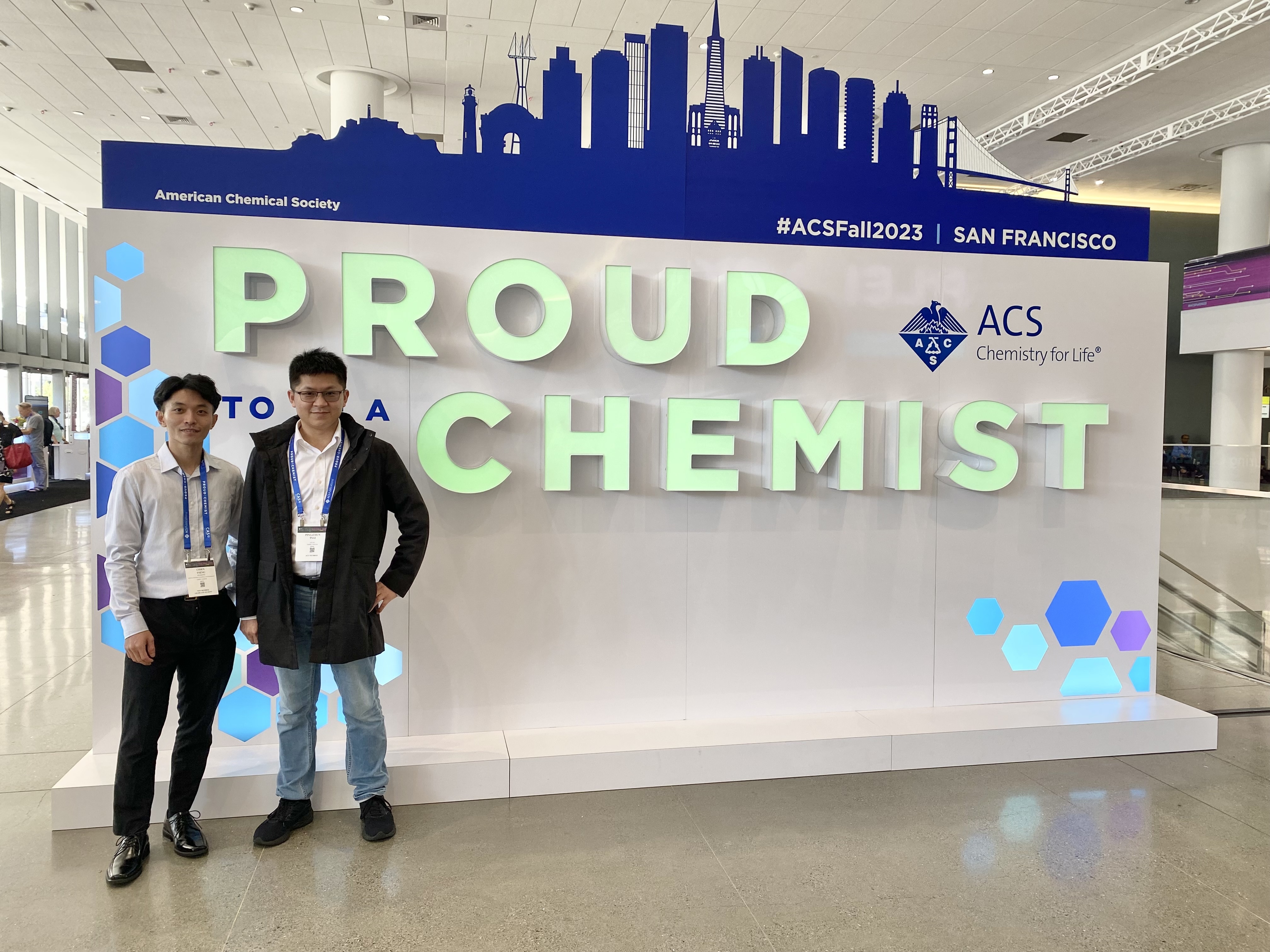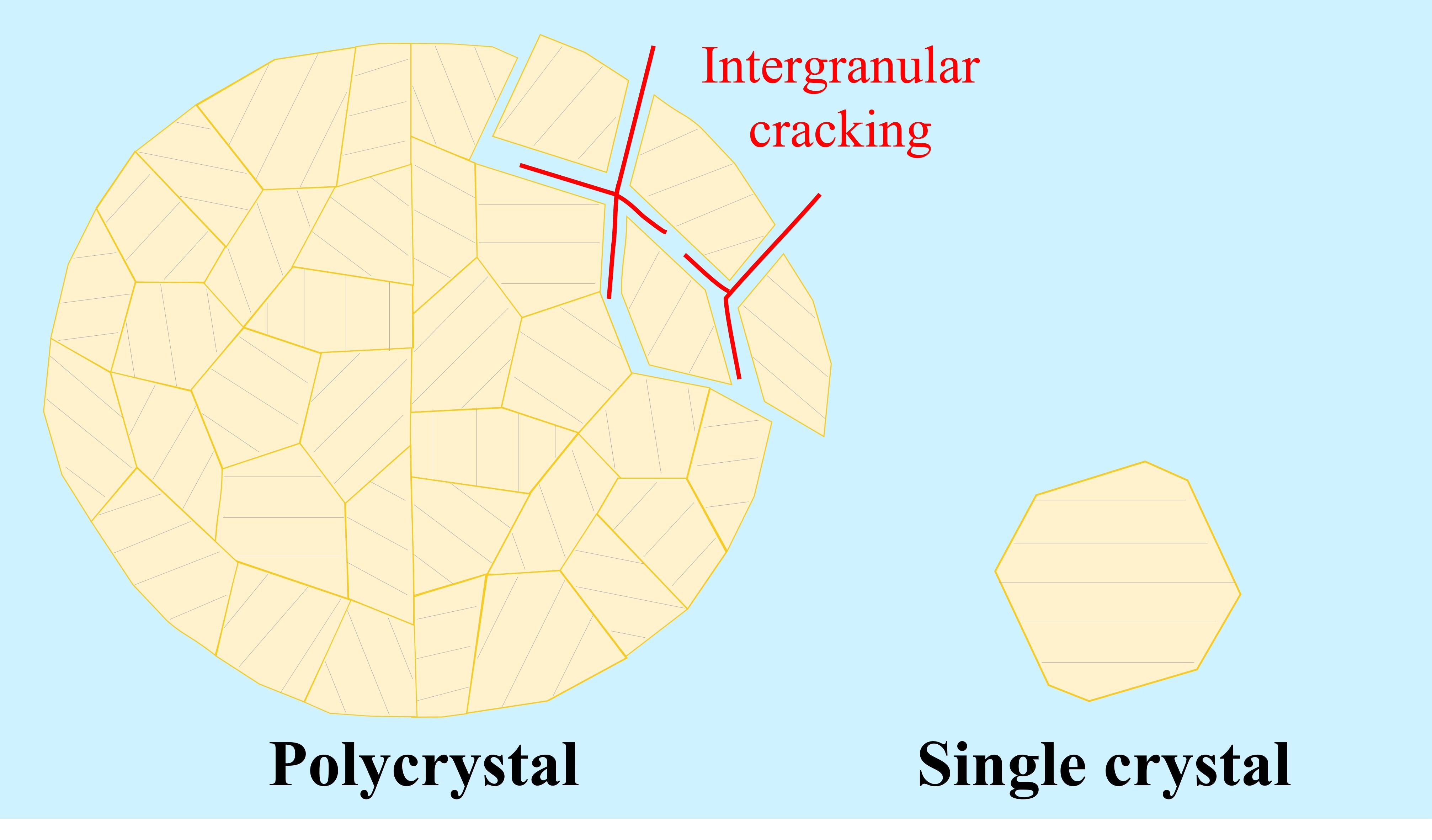A master’s student at Taiwan Tech received a subsidy to attend a chemistry annual meeting in the US and delivered a presentation in English on the analysis of a new single crystal cathode technology for lithium batteries.
Chi-En Tseng, a master's student in the Department of Mechanical Engineering at Taiwan Tech, conducted research on the rate performance measurement of lithium battery polycrystals and single crystals in the laboratory of Assistant Professor Bing-Chun Tsai. His achievements were presented in English at the 2023 Fall Meeting of the American Chemical Society (ACS). Among the 59 speakers at the "Lithium and Sodium Battery Symposium", he was the only master's student presenter. Furthermore, he had the privilege of receiving joint sponsorship from the Foundation for the Talented and the National Science Council, which funded Chi-En Tseng's flight to San Francisco, USA, and covered his living expenses.

At the American Chemical Society (ACS) annual conference, a photograph captures Taiwan Tech's student, Chi-En Tseng (left), and Professor Bing-Chun Tsai (right) in the event's venue.
Chi-En Tseng took the proactive step of joining Professor Bing-Chun Tsai's research team during the latter part of his undergraduate years. Together, they embarked on a research project funded by the National Science Council, titled "Integration of First Principles Calculations and Single-Particle Electrode Measurements in the Development of Novel Single Crystal Cathode Powders for Lithium Battery". Explaining the significance of their work, Tseng elucidated that the focus of current research efforts centers around extending the lifespan and enhancing the charging efficiency of lithium batteries used in mobile phones and electric vehicles. Triple-cationic cathode materials are notable for their high energy capacity and cost-effectiveness. However, traditional polycrystalline cathodes are prone to particle rupture during cycling, leading to substantial capacity degradation.
Tseng highlighted that the innovative single-crystal cathode addresses this issue by offering an extended cycling lifespan. He further emphasized his quantitative analysis of the electrochemical kinetic performance of polycrystalline and single-crystal cathodes under various charge states. This analysis, combined with the investigation of internal morphological changes in the cathode materials during the charging and discharging processes, has resulted in a successful evaluation of the charging capabilities of polycrystalline and single-crystal cathodes.

An illustrative diagram depicting particle and grain boundary ruptures in polycrystalline (left) and single-crystal (right) cathode materials for lithium batteries.
Chi-En Tseng stated that although he had rehearsed his presentation countless times in Taiwan, he still experienced nervousness while delivering his research findings in English at the American Chemical Society annual meeting. He even noticed a slight trembling in the laser pointer's red dot. At that moment, he reminded himself of the need to overcome this nervousness. He recognized that succumbing to anxiety and underperforming leads not only to regret but also provides a pretext for avoidance when facing significant occasions in the future. Tseng emphasized that future competition knows no boundaries of nationality or age. He expressed deep gratitude to Professor Bing-Chun Tsai, who inspired independent thinking, urged self-reliance, and encouraged expanding one's perspective beyond the confines of Taiwan to engage in international discourse.
During the past summer, Chi-En Tseng also participated in the Asia Campus program, a substantial event hosted at Shanghai Jiao Tong University. The program convened students from Taiwan, China, Japan, South Korea, and Mongolia. Following this experience, he embarked on a dual master's program specializing in energy research at Kyushu University in Japan. While acknowledging the need for adaptation and synchronization, along with the challenge of balancing his commitments between Kyushu and his ongoing work in Taiwan's laboratory, Tseng firmly believes in the importance of making brave choices and persevering. He is confident that these efforts will yield rewards in the future.
The American Chemical Society, established in 1876, stands as one of the most venerable and respected organizations in the field of global chemistry. It is recognized for its academic authority and influence in the global chemistry community. The society conducts two annual conferences, encompassing a wide array of chemistry domains, with contributions from over 20,000 experts in academia and industry worldwide. These conferences serve as a prominent international platform for the presentation of cutting-edge chemistry research. Chi-En Tseng's selection as an oral presenter represents a remarkable achievement amidst intense global competition.
